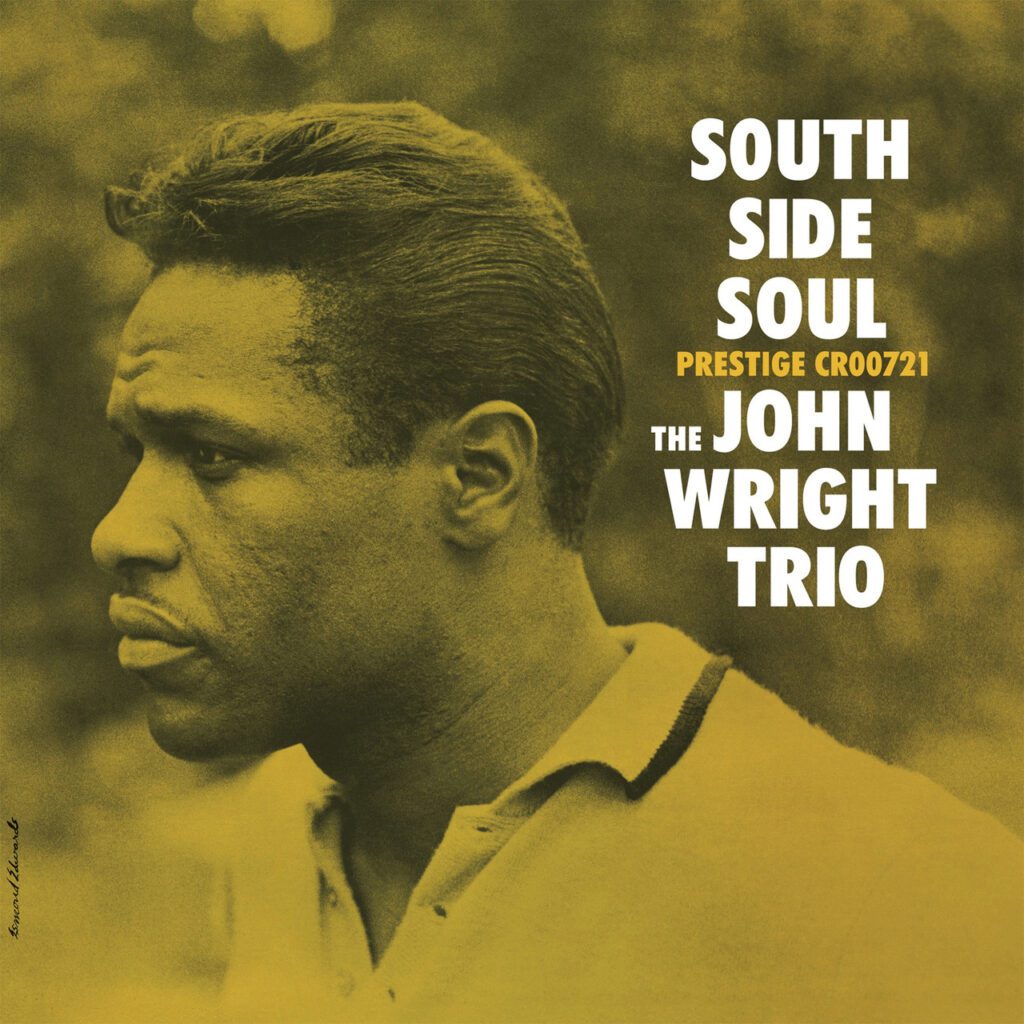The late Chicago-based pianist John Wright might be a lesser known figure in the grand jazz scheme of things, but he cut five sharp albums for Prestige between 1960 and 1962 that are worthy of remembrance. The first, South Side Soul, is getting a fresh release by Craft Recordings on 180 gram vinyl as part of their ongoing Original Jazz Classics reissue series. Due June 28, the set hits a piano trio soul jazz sweet spot with deep blues and churchy inflections. If Wright’s highest profile recording, it remains an underrated example of soul jazz at its most versatile.
Although he’d only been gigging professionally for a few years at the point of South Side Soul’s recording, John Wright had been playing since childhood, gathering experience that’s evident in his debut’s assured flow. Wright played in church as a child and excelled without formal lessons. Joining the Army prior to graduating high-school, he ended up in Special Services (i.e., the entertainment division) while stationed in Germany. After returning home to Chicago in 1955, he began playing around the city and eventually landed on the Prestige label’s radar.
South Side Soul is steeped in the essence of Chicago. It’s right there in the album’s title of course, but also in the names of the songs, and additionally in Wright’s musical influences, which are clear but expressed in an individual way as the record unwinds. Right away the opening title cut exudes a bluesy feeling strengthened by the rhythm section of bassist Wendell Roberts and drummer Walter McCants. “47th and Calumet” gets even bluesier, but Wright maintains an air of the erudite in his playing that can bring contemporary Chicagoan Ahmad Jamal to mind.
Wright’s soulfulness isn’t gutbucket, but his playing does possess an appealing edge and the trio is deft at stylistically enhancing the specifics of the song titles; throughout the album, there are hints of another Windy City soul jazz cornerstone in Ramsey Lewis, plus flashes of Mose Allison and even the production genius of Willie Dixon.
“La Salle St. After Hours” is a solid soundtrack for late night carousing, with McCants’ work at the kit suggesting he’d worked a few shifts beating the traps in bump and grind joints. But Wright is also restrained as he resists turning the tune into a noir-fest. “63rd and Cottage Grove” is a sprightly cooker that shows the group could excel at post-bop fare (while giving it a gospel tinge), and then “35th St. Blues” slows it down and spreads out, intermingling the titular feeling with jazzy flair.
Wright could certainly deliver in a straight blues piano context (having supported bluesman Arbee Stidham on his enjoyable 1961 Prestige set Tired of Wandering), but South Side Soul reinforces that he was pursuing a sound that encapsulated the broader Chicago experience. As Amiri Baraka (then writing as LeRoi Jones) mentions in his sleeve notes, “Sin Corner” could be any number of points on the city’s map. It’s to Wright’s credit that it could been Maxwell St., but just as easily, Hastings.
Still, Wright offers an atmosphere of refinement in “Sin Corner” rather than have us marinate in an air of turpitude, a decision that combines well with “Amen Corner,” which refers to the spot in the Black church where the most vocal parishioners congregate; the trio’s playing hits the gospel target right in the bullseye for the LP’s close.
All of Wright’s Prestige albums are worthy of investigating; that’s Nice ‘n’ Tasty (1960), Makin’ Out (’61), Mr. Soul (’62), and The Last Amen (recorded in ’61 but released in ’65). Makin’ Out adds the tenor sax of Eddie “Cat Eye” Williams, but the rest are trios (with the expected shifts in personnel). There are later entries in his discography that shouldn’t be overlooked, but for anyone looking to get a handle on the artistry of John Wright, South Side Soul is the place to start.
GRADED ON A CURVE:
A-
